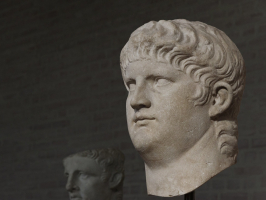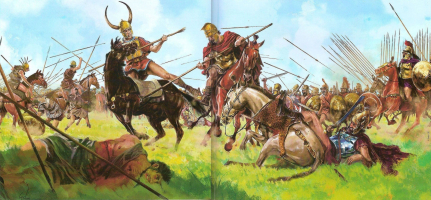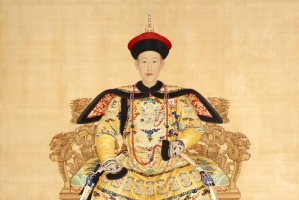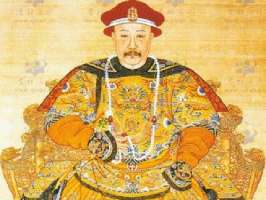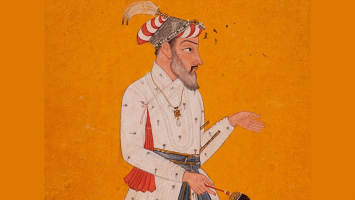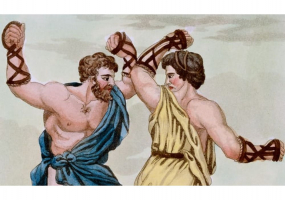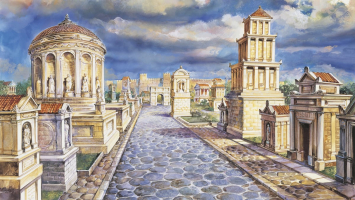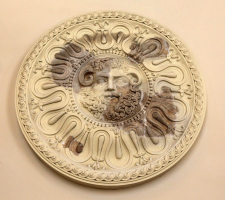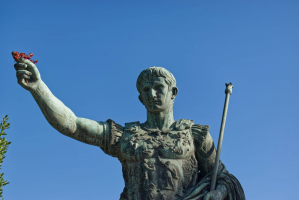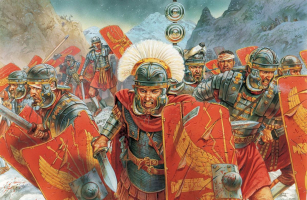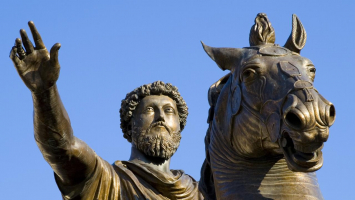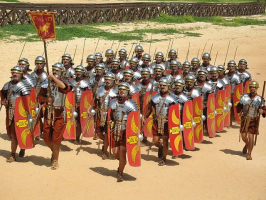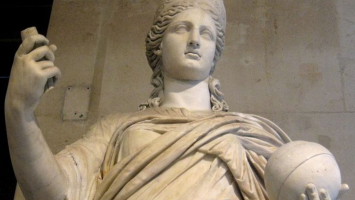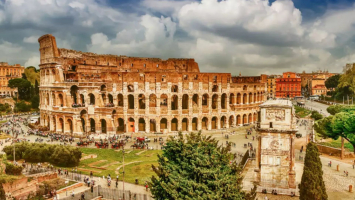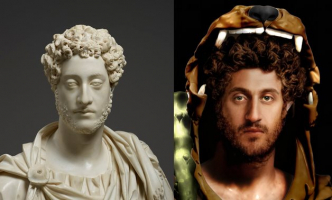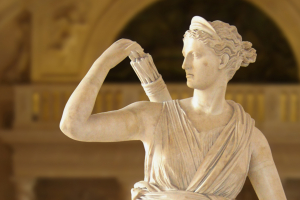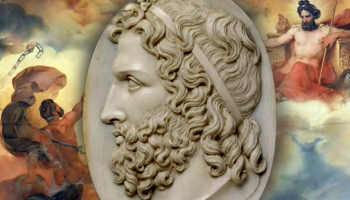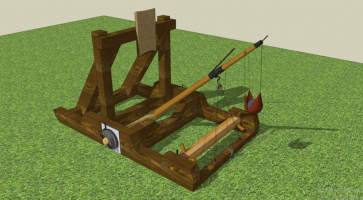Top 10 Greatest Roman Emperors
Few historical periods have had a greater impact on humanity than that of ancient Rome. While its influence on Western civilization, in particular, has been ... read more...pervasive, remnants of it can be found almost everywhere, from our calendar and political systems to our alphabet. Roman emperors were the appointed rulers of the empire that began when the Roman Republic ended. The legality of an emperor's authority was contingent on his control of the army and Senate approval; an emperor would typically be proclaimed by his troops, or the Senate would bestow imperial titles on him or both. Throughout this period, several emperors ruled and their reigns were divided into several dynasties. Here is the list of the top 10 greatest Roman emperors you can explore!
-
First of all, one of the greatest roman emperors is Augustus. The founder of the Roman Empire, Augustus, who ruled for the longest period - 41 years, from 27 BC to 14 AD is the clear choice at the top of the list. Born under the name Octavian, he was awarded the title Augustus by the Senate as a reward for his exceptional achievements.
Together with Mark Antony, he continued to seek revenge for Caesar's death before splitting up with him. After defeating Mark Antony and the well-known Egyptian monarch Cleopatra, he helped the Roman Senate draft a new constitution for the vast empire.
The Roman Peace, also known as Pax Romana, began under the reign of Augustus. There were other conflicts along the Roman frontiers in the name of expansion and a year-long civil war too, but following the ascent of Augustus to the throne, the Roman world remained free of any large-scale combat for more than two centuries. While the Roman population was expanding, Augustus also instituted several changes, such as tax breaks for families with more than three children and fines for childless unions. He was a ruthless constructor who oversaw the building and restoration of several important temples in Rome as well as the strengthening of its renowned aqueduct system.
Building highways, aqueducts, and other structures, Augustus reigned wisely. Not only was Augustus the first emperor of Rome, but he was also unquestionably one of the finest.
Lifespan: September 63 BC - 19 August, 14 AD
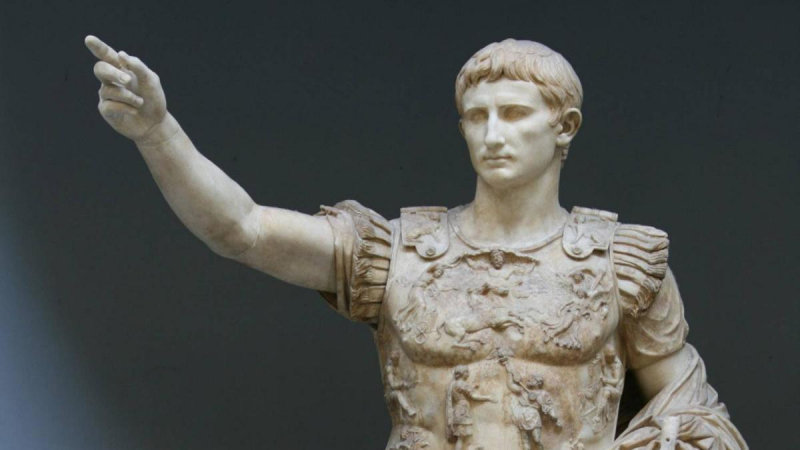
Photo: https://www.history.com/ 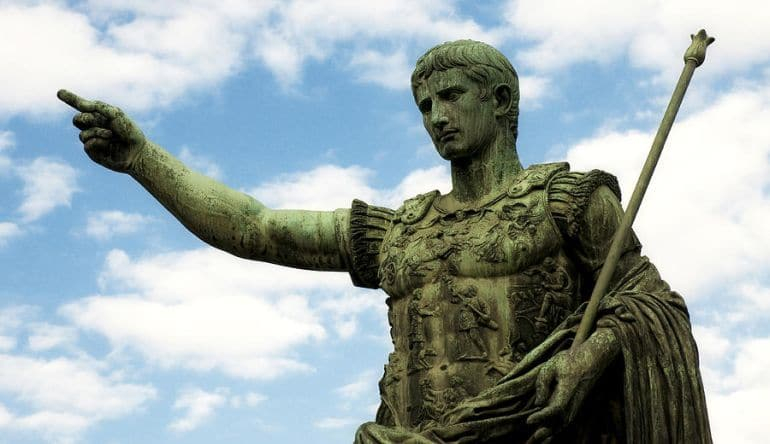
Photo: https://www.realmofhistory.com/ -
Known as one of the greatest Roman emperors, Trajan was famously referred to as "the finest emperor" by the Senate and controlled ancient Rome from 98 AD until his demise in 117 AD. One of Rome's most notable rulers, Trajan is credited with bringing the empire to its pinnacle.
He is recognized as an accomplished soldier-emperor who oversaw the largest military expansion in Roman history and brought the empire to its highest geographical extent at the time of his demise. He had gained notoriety by his charitable reign that oversaw vast public building initiatives and welfare measures and was admired by the Senate, the military, and the general public.
Trajan's legacy as an emperor has persisted. He was one of the select few kings whose fame has endured for 19 centuries. Marcus Ulpius Traianus was the second Roman emperor of the Nerva-Antonine dynasty, sometimes known as Rome's "Golden Age," and is frequently mentioned by historians as the "greatest Roman emperor."
The Senate bestowed the blessing felicior Augusto, melior Traiano, which roughly translates to "be fortunate than Augustus and better than Trajan," on each succeeding emperor.
Lifespan: September 53 AD - 8 August, 117 AD
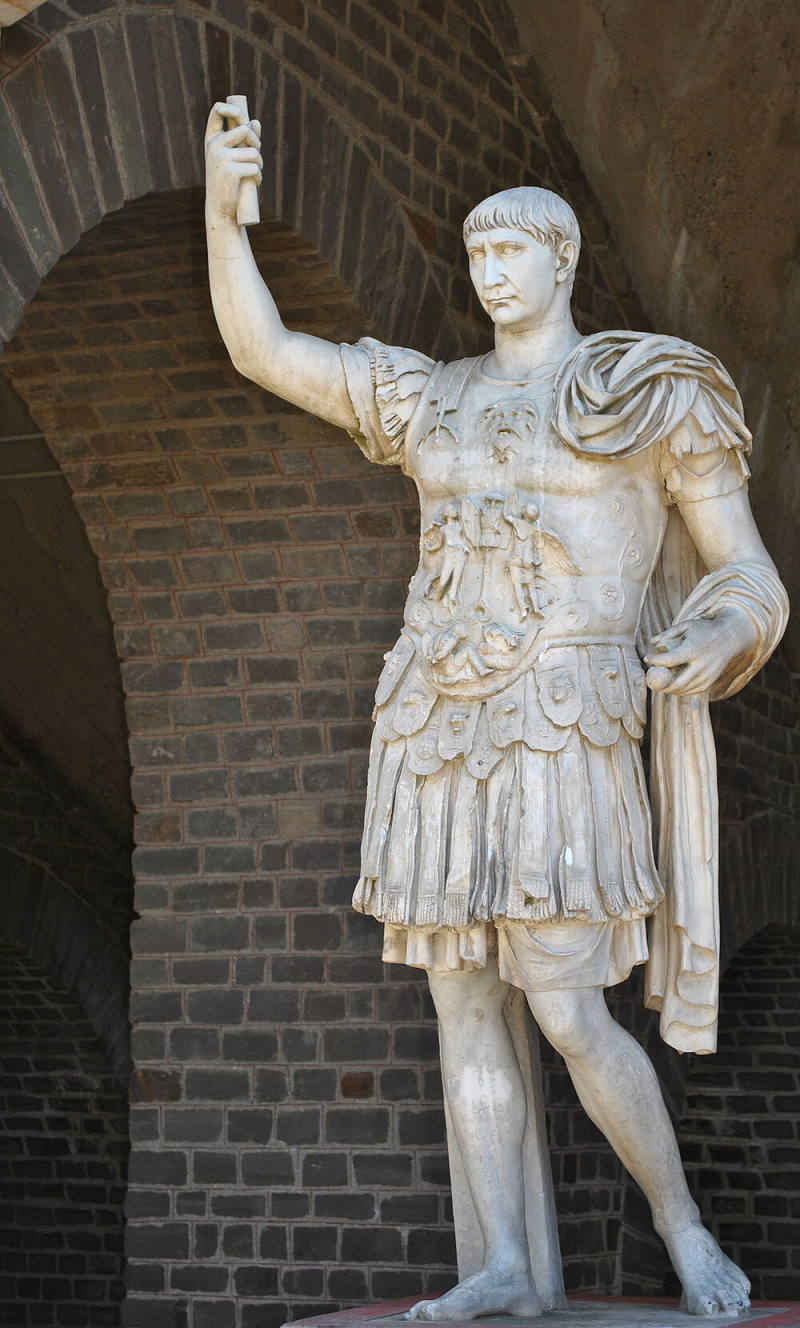
Photo: http://www.historyisnowmagazine.com/ 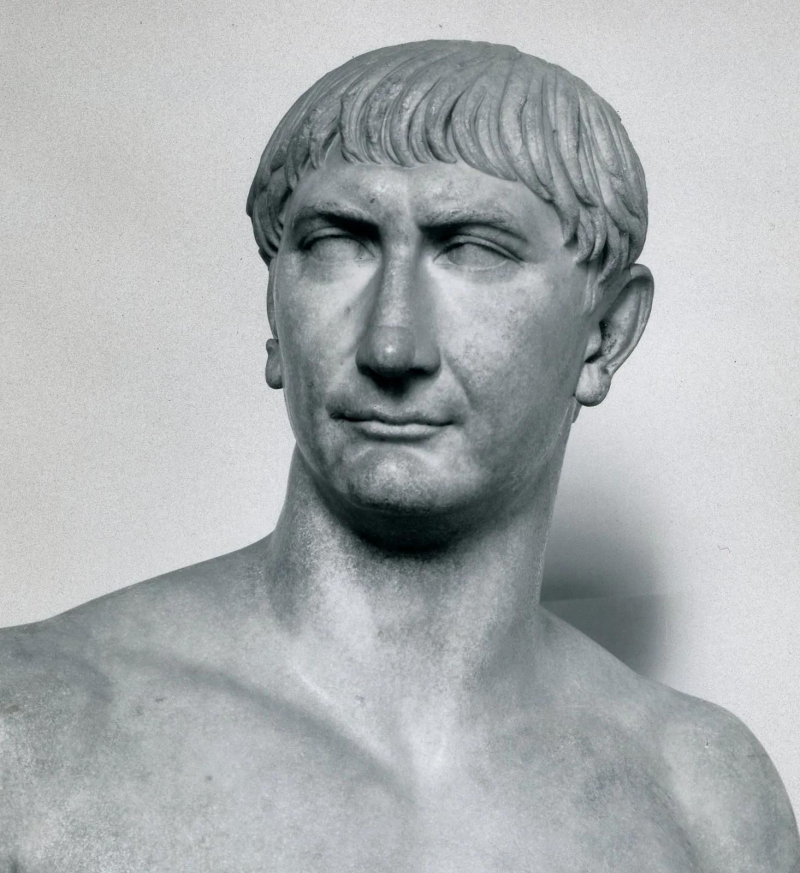
Photo: https://www.britannica.com/ -
Marcus Aurelius, a stoic philosopher and the last of the "Five Good Emperors," reigned the Roman Empire from 161 to 180 AD. During his rule, the empire fought a revived Parthian Empire in the east, and in central Europe, he won the Marcomannic Wars against the Marcomanni, Quadi, and Sarmatians, just as the threat posed by the Germanic tribes was beginning to become a serious concern. Aurelius put an end to a potential uprising in the east that was being headed by Avidius Cassius before it could get out of hand.
Marcus Aurelius was a remarkable philosopher and author. His stoic work Meditations, which he wrote in Greek while on a campaign between 170 and 180 AD, is still regarded as a literary monument to the philosophy of service and duty. It explains how to find and maintain composure during a conflict by looking to nature for inspiration and guidance.
Within his lifetime, Marcus Aurelius had a reputation as a philosopher king; the moniker would continue after his passing as he became known as "the Philosopher."
Lifespan: April 121 AD - 17 March, 180 AD
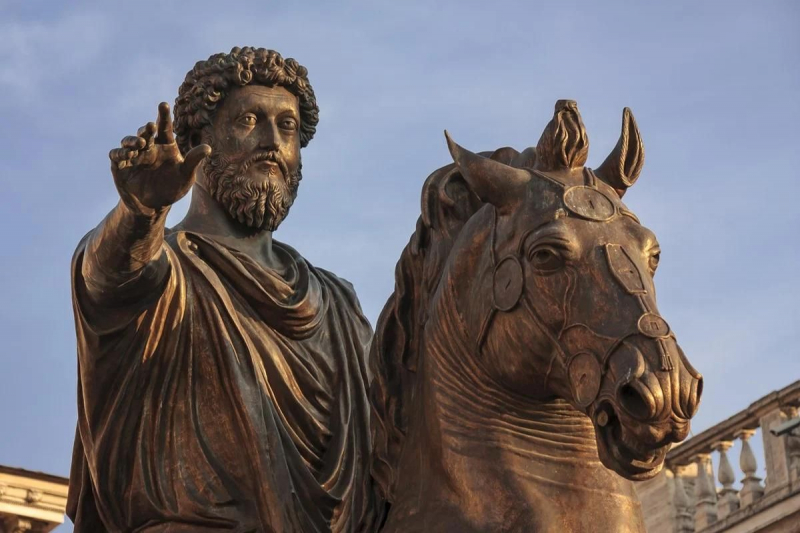
Photo: https://fee.org/ 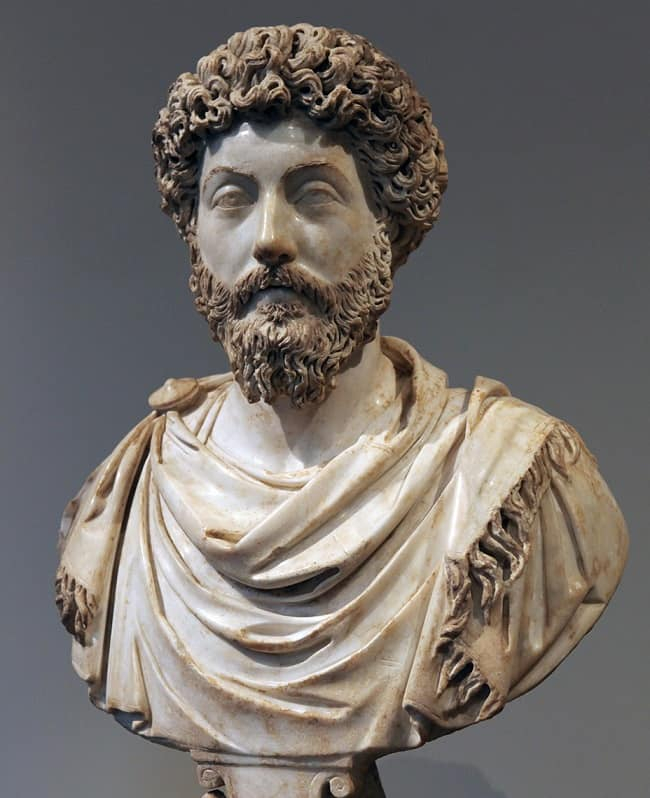
Photo: https://eccthai.com/ -
Tiberius Claudius Nero, who ruled from 14 to 37 AD, was the son of Livia Drusilla, who had wed Augustus in 39 BC and therefore was Augustus's stepson. Eventually, when Augustus accepted him as his successor, he adopted the name Tiberius Julius Caesar, which would later be adopted by other emperors.
One of Rome's finest generals, Tiberius, established the northern boundary by capturing Pannonia, Dalmatia, Raetia, and briefly, portions of Germania. But he was regarded as a gloomy, introverted, and solemn monarch who was forced to assume the role and never really desired it.
Tiberius Caesar Augustus was one of the best rulers in ancient Rome at obtaining territory for the empire. The only reason the second emperor of Rome is on this list is because of his military victories. Tiberius is generally seen as having been indifferent in his role as emperor and politician and not averse to displaying that apathy.
Tiberius left the imperial treasury with approximately three billion sesterces when he passed away, notwithstanding the largely unfavorable impression he left behind by Roman historians. He decided to construct more bases and choose diplomacy over the battle instead of expensive acquisitions.
Rome developed into a more powerful, well-established empire as a result of all these novel initiatives. If he had passed away before 23 AD, a time marked by the Purge, he may have been praised as a model leader.
Lifespan: 16 November, 42 BC - 16 March, 37 AD
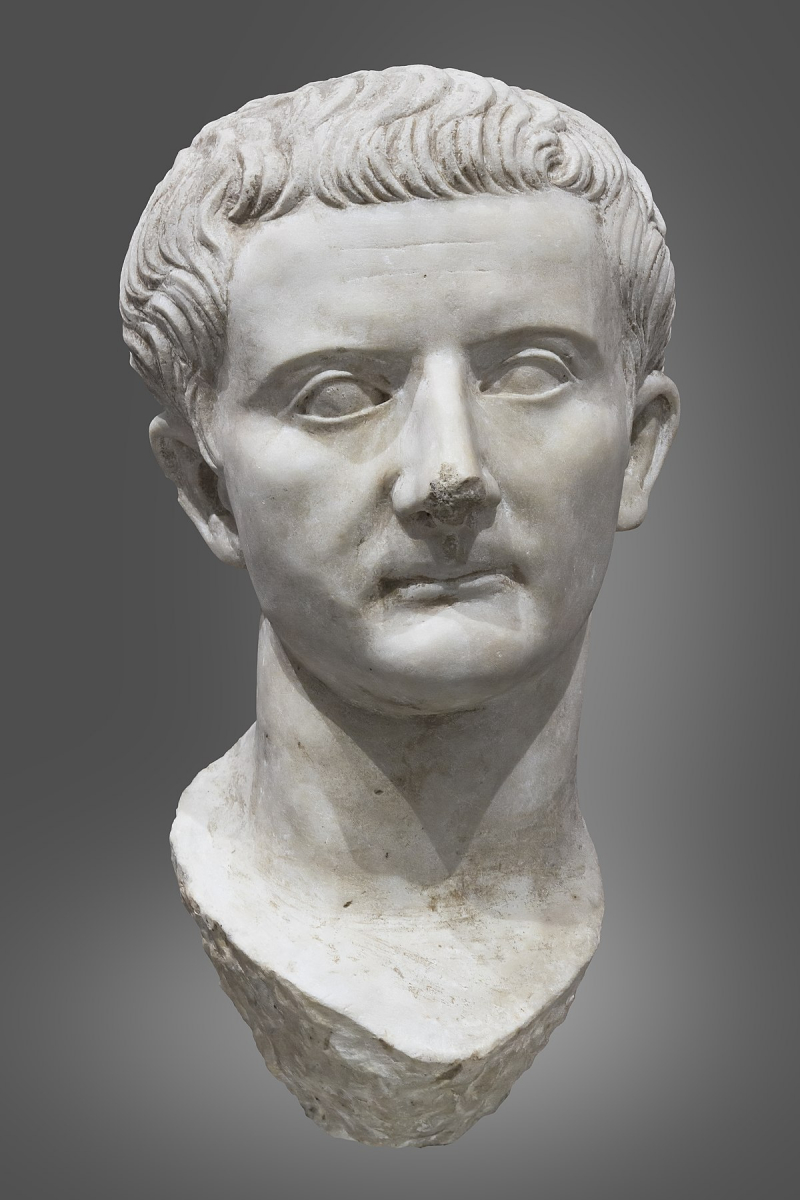
Photo: https://en.wikipedia.org/ 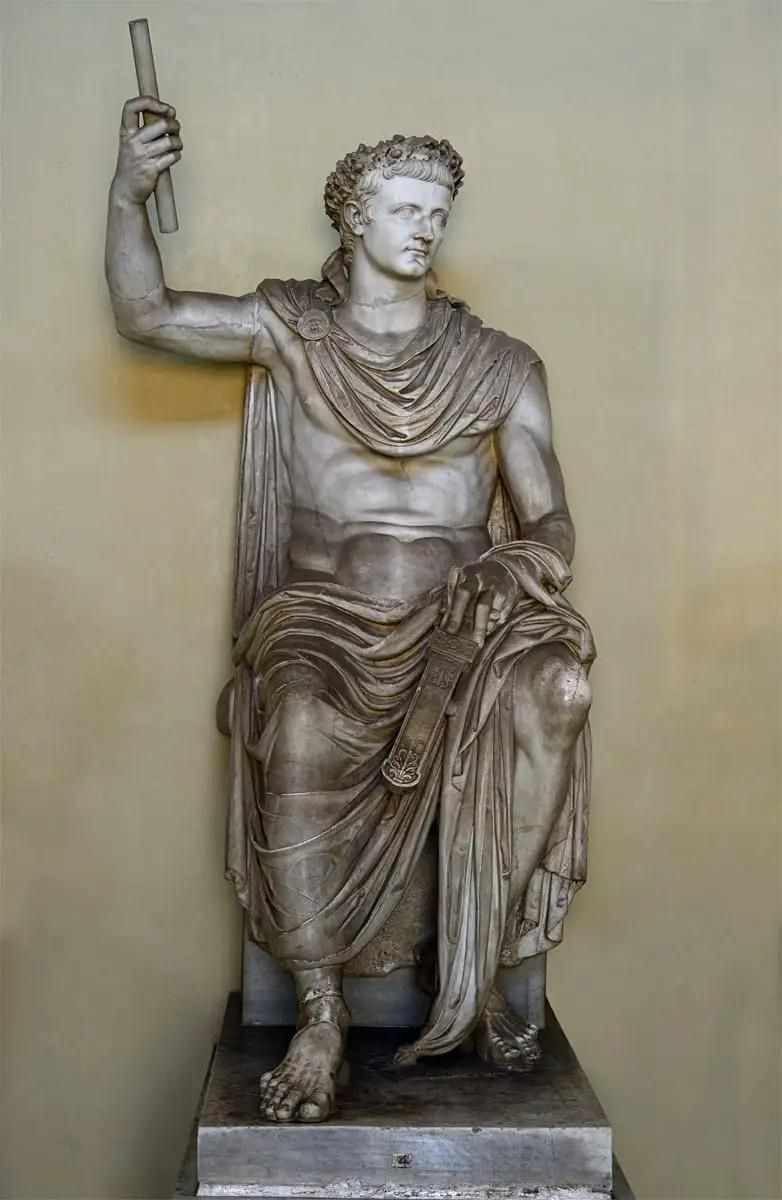
Photo: https://www.thecollector.com/ -
Claudius was the son of Drusus Minor and Antonia Minor. He is also considered one of the greatest Roman emperors. His reign, which spanned from 41 to 54 AD, makes him one of the first Roman emperors to be born outside of Italy. Due to his limp and mild deafness, he was unfairly shunned by his family and kept out of public service until he was appointed consul. But as it turned out, this specific flaw prevented him from meeting the same end as Tiberius and Caligula since possible adversaries never saw him as a real danger.
Because they vehemently opposed his succession to the throne, the nobles and the Senate saw his reign as weak, but the military was his main source of support. Claudius was a happy jumble of contradictory traits: absent-minded, hesitant, confused, determined, ruthless, perceptive, smart, and he was subjugated by his wife and his freedmen staff. However, Claudius proved to be a capable and effective administrator despite all of these factors and his obvious lack of experience.
He was a driven constructor as well. Throughout the empire, he built several new highways, aqueducts, and canals. The empire started its conquest of Britain under his rule. He presided over public trials and gave up to 20 edicts every day since he had a personal interest in the law.
Lifespan: August 10 BC - 13 October, 54 AD
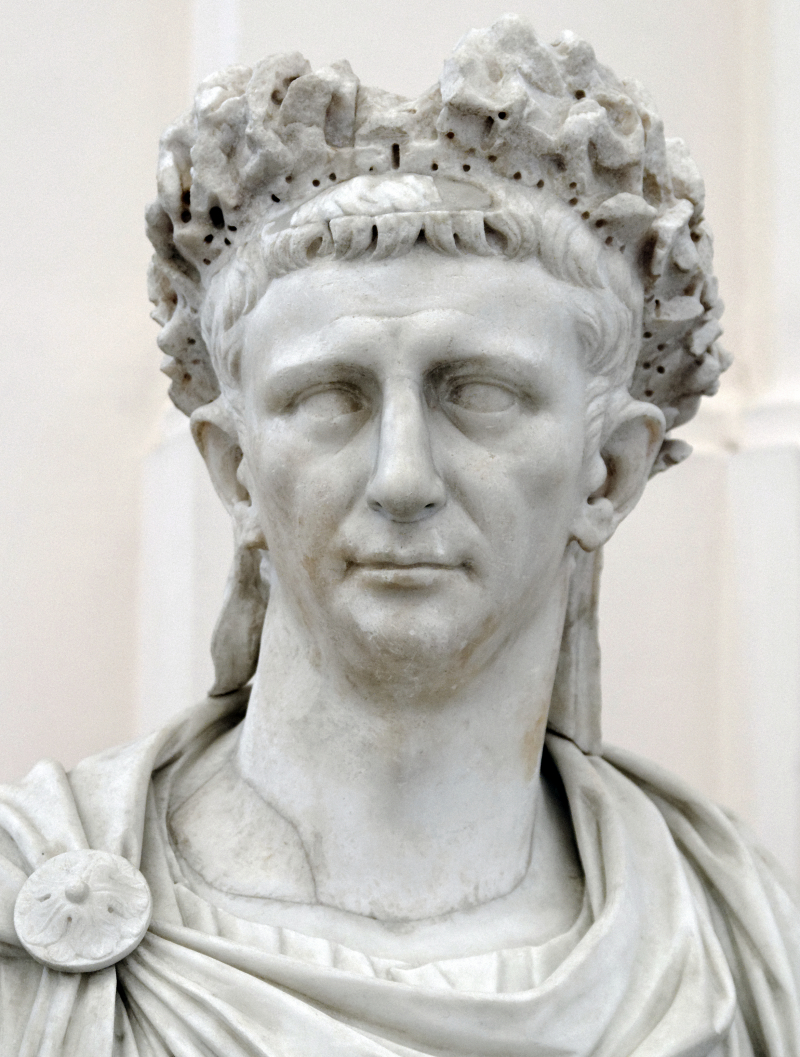
Photo: https://en.wikipedia.org/ 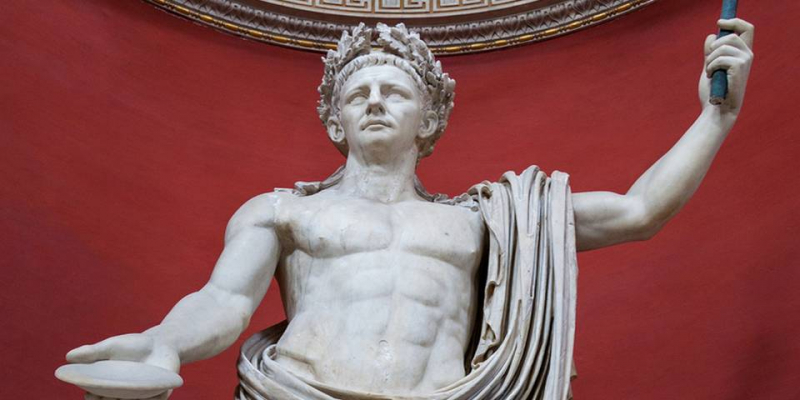
Photo: https://rome.us/ -
Hadrian, who reigned from 117 to 138 AD, was born to an Italian family as Publius Aelius Hadrianus. Even though Trajan, his predecessor, never declared him to be his successor in writing, Trajan's widow made the announcement moments before her husband passed away.
Because of his capacity to protect Rome and its frontiers and the exceptional technical skill he exhibited while doing so, Publius Aelius Hadrianus is regarded as one of Rome's most important emperors. To establish ties with the people on a provincial level, Hadrian traveled to almost every province throughout his reign. He was a well-known enthusiast of Greece and wanted to restore Greek architecture to its former splendor. He erected the Venus and Roma Temple and the Pantheon again. He directed the building of the 73-mile-long defensive fort known as Hadrian's Wall, part of which is still standing and is regarded as a symbol of British culture. He also departs from the Pantheon, whose ground-breaking use of concrete in the form of geometric forms changed architecture.
Hadrian spent a significant portion of his reign with the military, dressing in uniform and occasionally having meals, and sleeping with the troops. His main issue was keeping the troops aware and attentive, therefore he occasionally raised false alarms to assess the readiness of his army's training, drills, and crisis response. Except for the Second Roman-Jewish War, which he handled very deftly, his reign was characterized by a general absence of significant battles, despite his reputation as an effective military administrator.
Lifespan: January 76 AD - 10 July, 138 AD
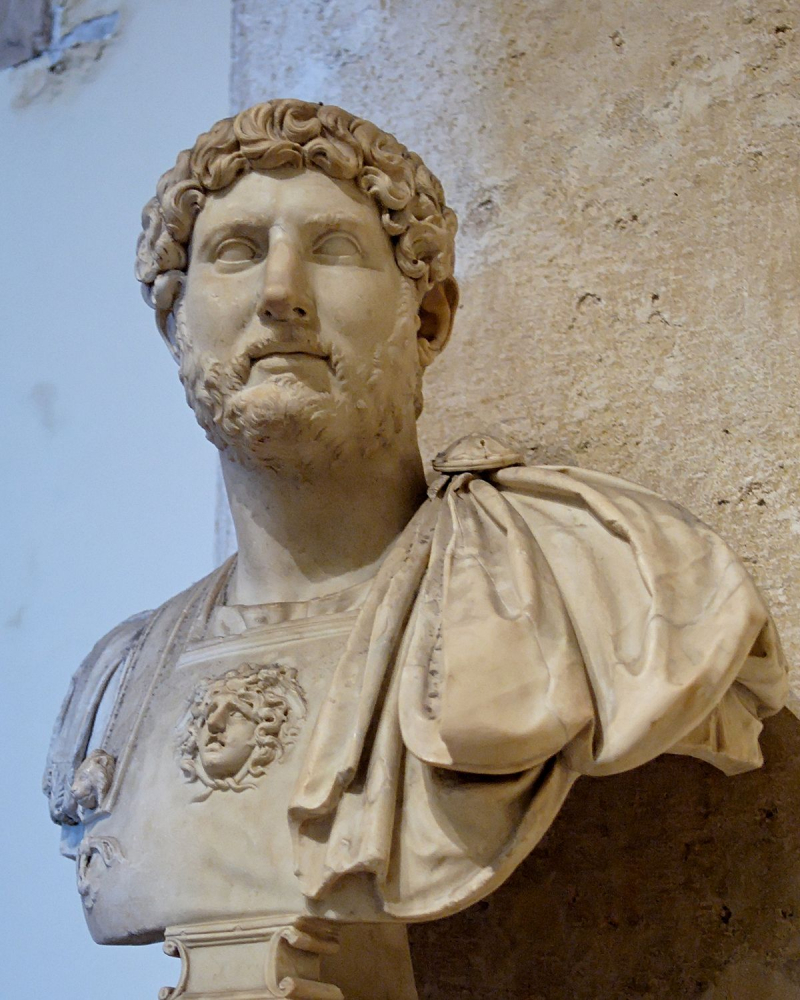
Photo: https://vi.wikipedia.org/ 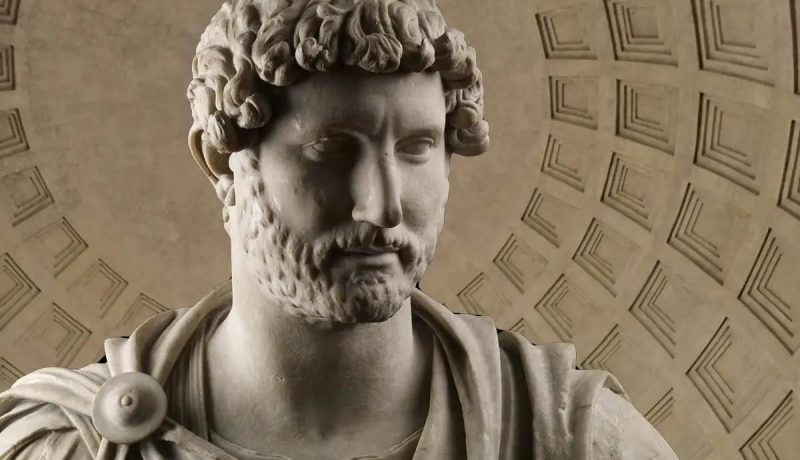
Photo: https://www.thecollector.com/ -
Vespasian was one of the greatest Roman emperors who ruled from 69 to 79 AD. He established the 27-year Roman Empire dominance of the Flavian dynasty.
His reign began while Rome was only beginning to recover from the misdeeds of notorious emperors like Nero and Caligula, as well as a civil war that saw four emperors in a single year. It was one of the most turbulent periods in Roman history. Rome did not experience stability and prosperity again until Titus Flavius Vespasianus assumed the throne and put the country back on course.
Vespasian, a capable general with a reputation for being a down-to-earth man, was given the job of restoring equilibrium to Rome. And he succeeded in doing exactly that during his ten-year reign, making him renowned as one of the greatest Roman emperors.
Much money was spent on public projects as well as the renovation and embellishment of Rome under Vespasian's rule. He started work on the Temple of Peace, various public baths, and the Colosseum, one of the most impressive buildings in all of ancient Rome. Sadly, Vespasian had passed away by the time the Colosseum was finished. He was replaced by his eldest son Titus after his death in 79 AD, making him the first Roman emperor to be immediately succeeded by his biological son and founding the Flavian dynasty.
Lifespan: November 9 AD - 23 June, 79 AD
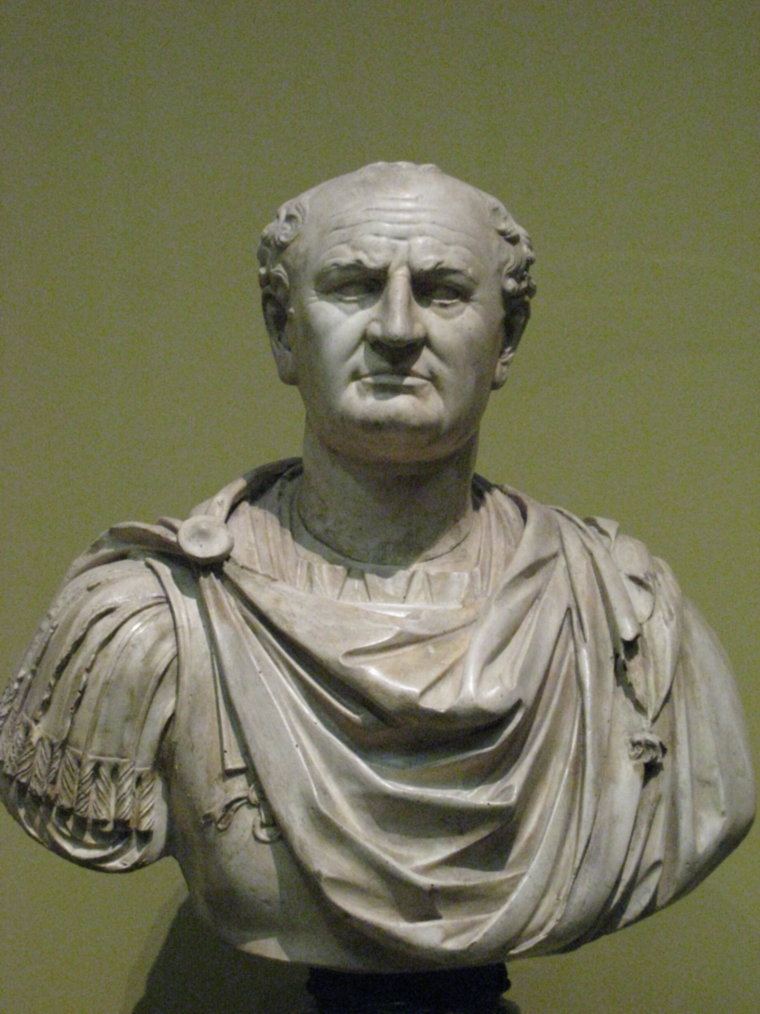
Photo: https://en.wikipedia.org/ 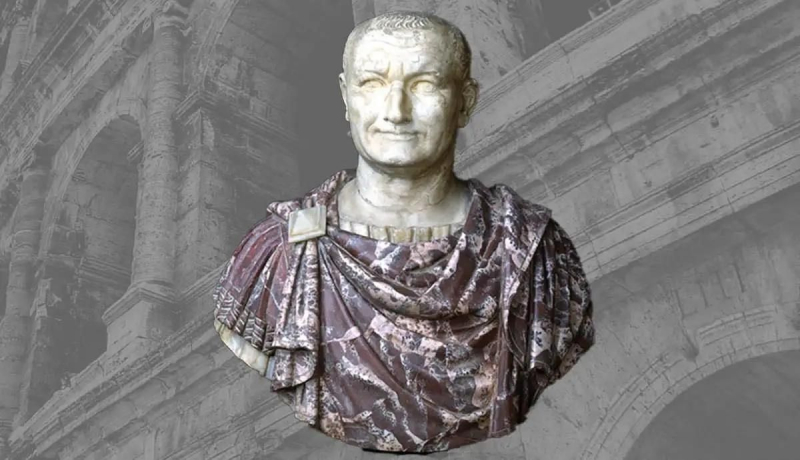
Photo: https://www.thecollector.com/ -
Antoninus Pius, Hadrian's adoptive son, and successor governed the Roman Empire from 138 to 161 AD. Giving honors to his adopted father Hadrian was his first official act as emperor. Additionally, as a condition of the agreement, Antoninus adopted Marcus Aurelius, the future emperor.
He was among the most tranquil emperors in Roman Empire history. Pius was able to concentrate on advancing Hadrian's municipal reforms and successful infrastructure projects because of the absence of unrest. But the judicial system was his greatest gift to Roman civilization. Pius established a legal system that would later serve as the benchmark for many countries constructing their legal systems, including Britain, France, and Germany. Pius was the first Roman emperor to uphold the idea of "natural law."
He erected temples, theaters, and mausoleums that supported Roman art and science and honored and rewarded those who taught philosophy and eloquence. Because he handled these problems without ever leaving Italy, Antoninus was practically exceptional among Roman emperors. Later generations and those who lived during his time strongly respected this kind of administration.
Lifespan: 19 September, 86 AD - 7 March, 161 AD
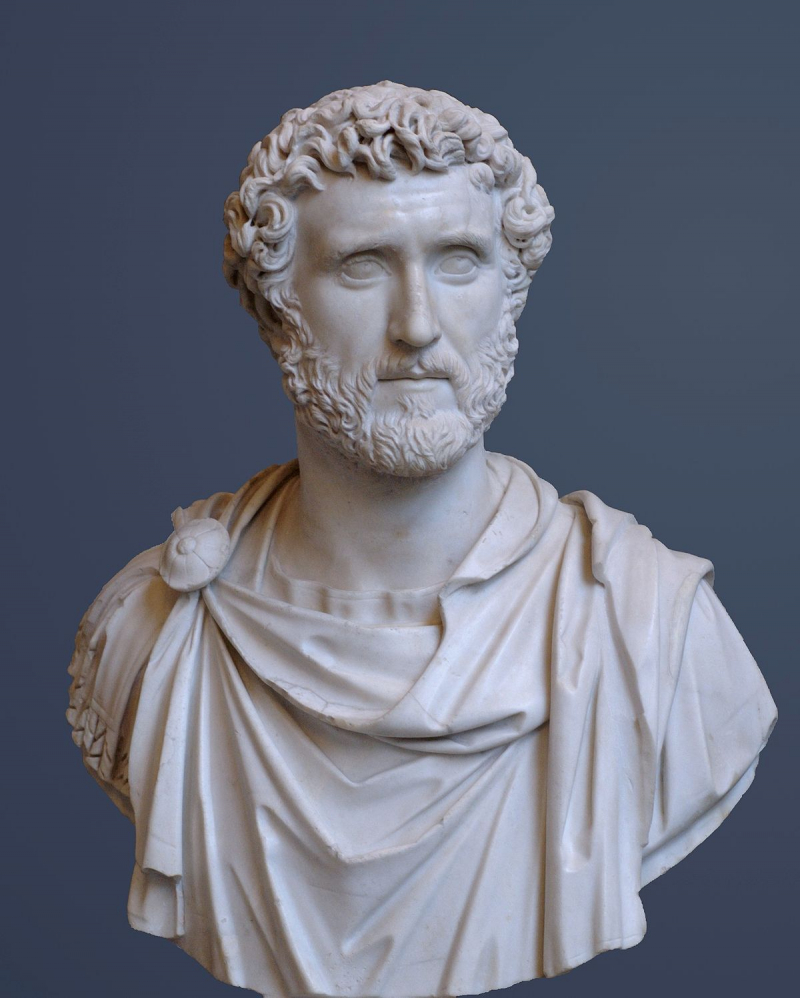
Photo: https://vi.wikipedia.org/ 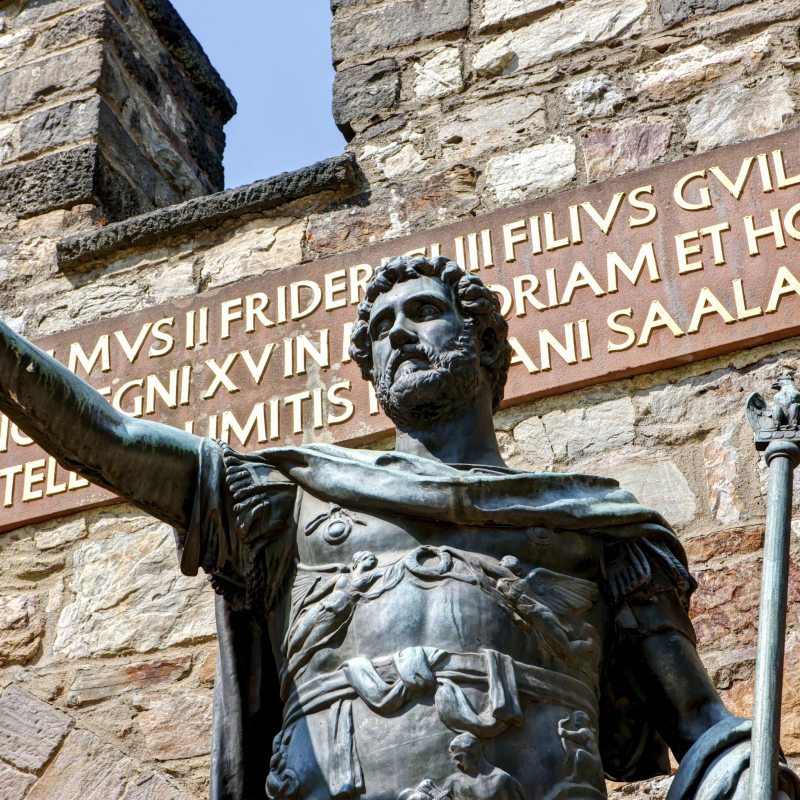
Photo: https://www.thoughtco.com/ -
Flavius Valerius Aurelius Constantinus Augustus was Constantine's full name. Constantine I, who was often regarded as the last western Roman emperor, brought about several changes that would permanently transform the Roman empire. This renowned emperor was a leader of significant historical significance who later rose to become the first Christian Roman emperor in recorded history.
He achieved significant victories over formidable adversaries including the Franks, the Alemanni, the Goths, and the Sarmatians as well as uniting a split empire under a single ruler. A few of the long-lost Roman provinces were also retaken by him. He founded Constantinople, which became the seat of the Byzantine Empire for many years, and gave it his name. He was often referred to be the founding father of Byzantium because of this.
He saw the need for Christian assistance as Christianity was growing, and as the first emperor to convert to Christianity, he eventually rose to prominence in Christian history. His command to construct the Church of the Holy Sepulchre at the alleged location of Jesus' tomb in Jerusalem resulted in it being the holiest site in all of Christianity. His conversion had a profound effect on the succeeding Byzantine Empire's choice of religion.
Lifespan: February 272 AD - May 337 AD
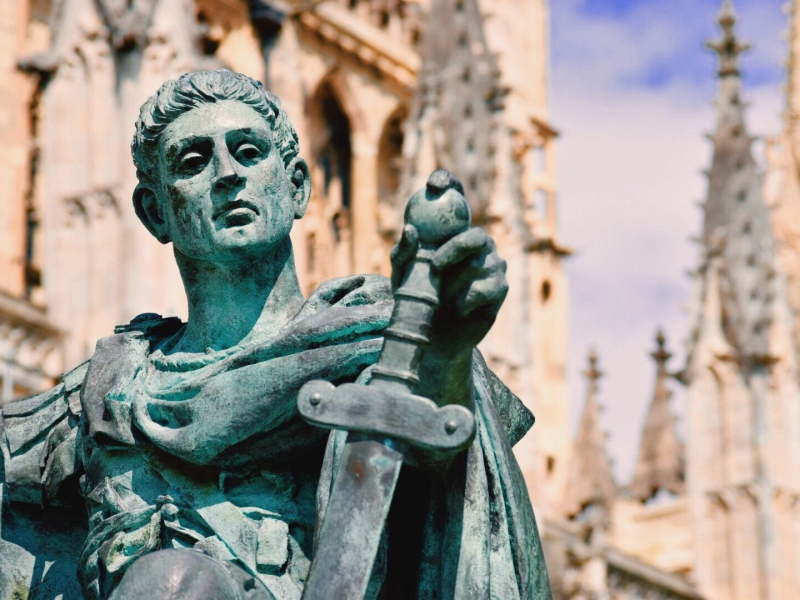
Photo: https://www.learnreligions.com/ 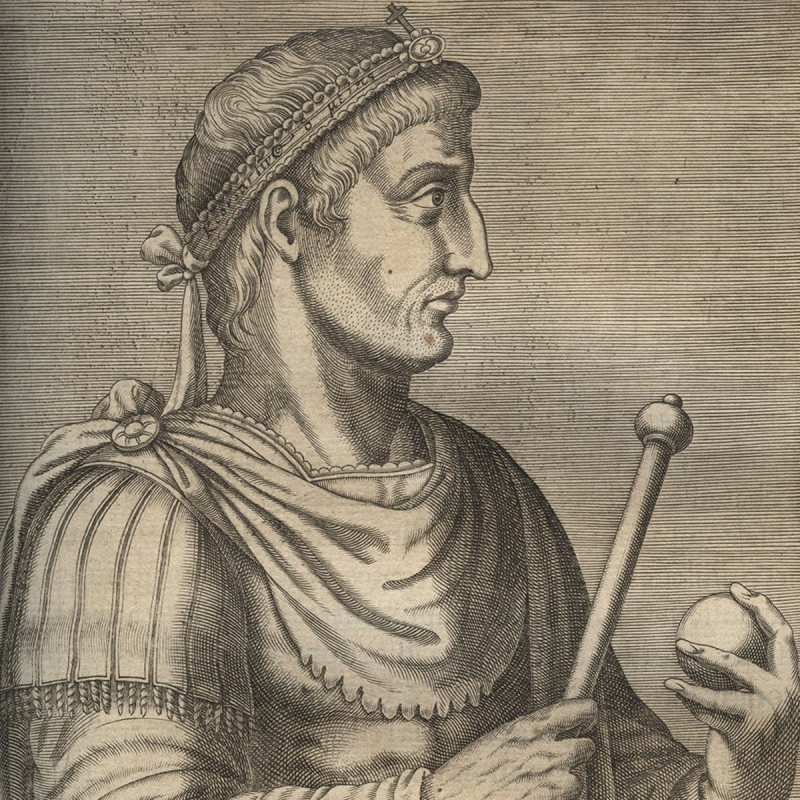
Photo: https://www.biography.com/ -
While Justinian I controlled the Eastern Roman Empire (also known as the Byzantine Empire) from 526 to 565 AD, the Western Roman Empire had already succumbed to the barbarians by the year 476 AD.
Justinian aimed to restore the empire's glory and retake the western half during his rule. Many areas of the empire were retaken by his two great generals, Belisarius and Narses, including Rome itself. Justinian has been referred to in modern history as "the last Roman" due to his efforts to restore the Roman Empire.
The Justinian Code, which was founded on a compilation of already existing Roman laws, is well recognized as Justinian's creation of a single, comprehensive code of law. All legal systems in the Western world have since adopted this code as their foundation.
In addition, Justinian oversaw the construction of several impressive structures in his capital city of Constantinople, the most notable of which was the Church of Hagia Sophia, which went on to serve as the long-lasting epicenter of Eastern Orthodox Christianity. But then, in the early 540s,s a terrible bubonic plague outbreak ultimately signaled the irreversible phase of Roman collapse.
Lifespan: 482 AD - 14 November, 565 AD
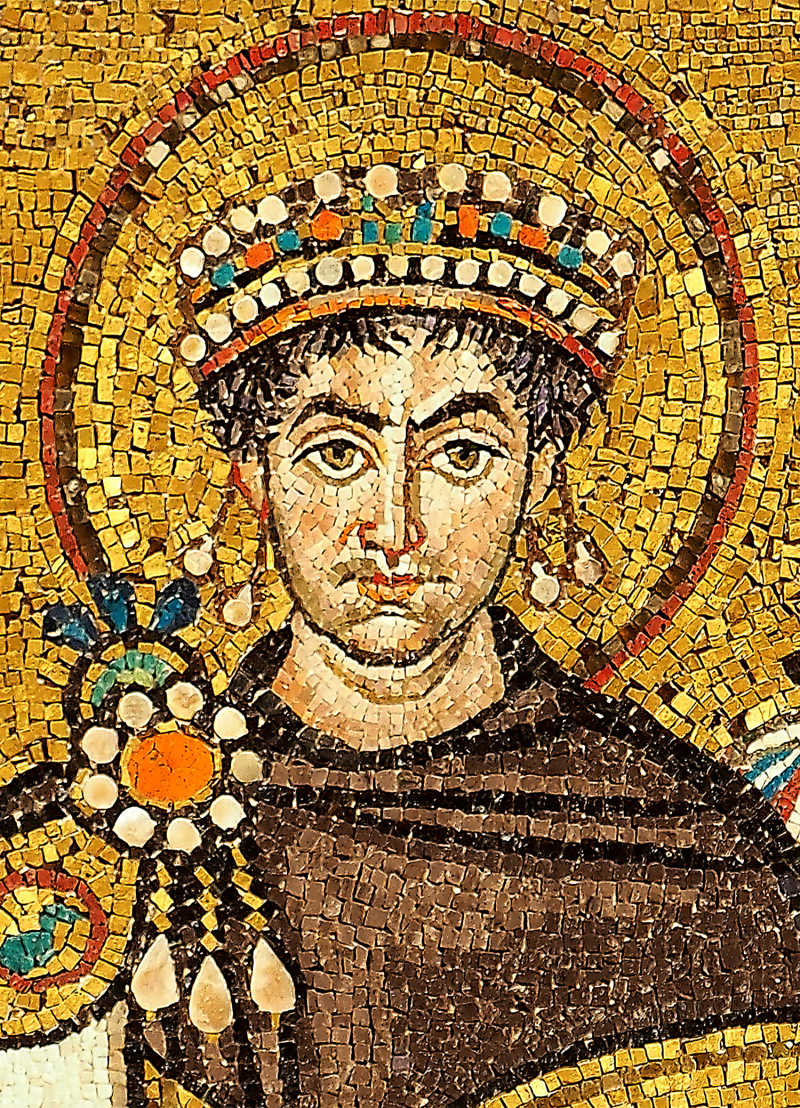
Photo: https://en.wikipedia.org/ 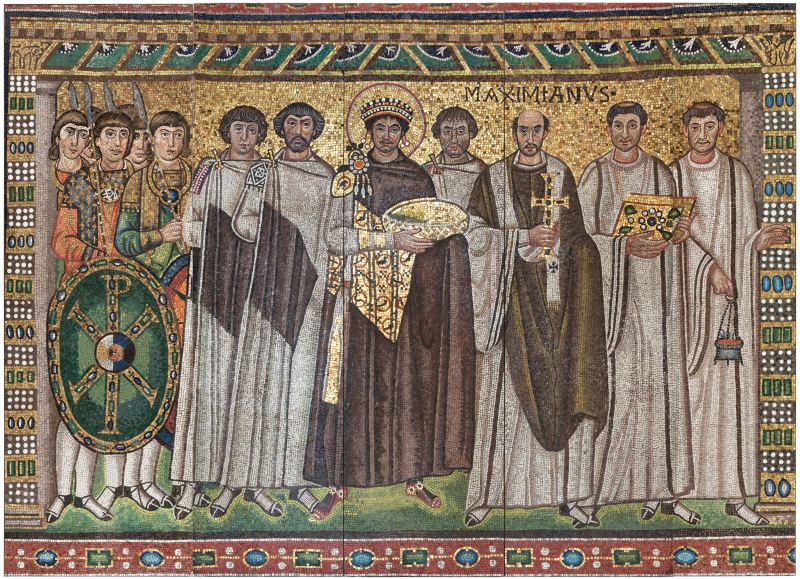
Emperor Justinian and Members of His Court - Photo: https://www.metmuseum.org/












